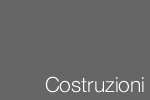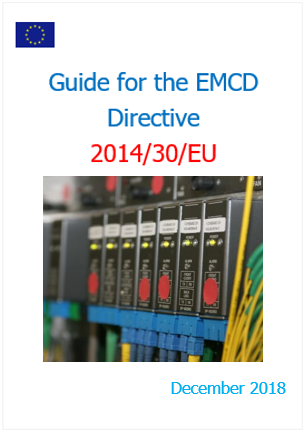| 1 x afterRenderRawModule mod_menu (Temi) (292.52KB) (14.93%) | 39.23ms |
| 1 x afterRenderRawModule mod_menu (Main Menu) (21.79KB) (11.26%) | 29.60ms |
| 1 x After Access::preloadPermissions (com_content) (16.77MB) (11.05%) | 29.03ms |
| 1 x Before Access::getAssetRules (id:8 name:com_content) (492.7KB) (10.33%) | 27.14ms |
| 1 x afterRender (986.18KB) (9.87%) | 25.93ms |
| 1 x afterInitialise (3.44MB) (9.08%) | 23.85ms |
| 1 x afterRenderComponent com_content (87.12KB) (4.97%) | 13.07ms |
| 1 x beforeRenderRawModule mod_login (Accedi all'area riservata) (1.75MB) (4.56%) | 11.99ms |
| 1 x afterRoute (309.66KB) (2.72%) | 7.14ms |
| 1 x afterRenderRawModule mod_menu (Documenti Abbonati) (179.28KB) (2.41%) | 6.34ms |
| 1 x afterLoad (86.27KB) (2.05%) | 5.38ms |
| 1 x afterRenderRawModule mod_menu (Top Menu) (31.08KB) (1.65%) | 4.33ms |
| 1 x afterRenderRawModule mod_menu (Policies) (23.48KB) (1.59%) | 4.19ms |
| 1 x afterRenderRawModule mod_menu (Marketing) (20.39KB) (1.41%) | 3.71ms |
| 1 x beforeRenderRawModule mod_menu (Main Menu) (33.91KB) (1.33%) | 3.50ms |
| 1 x afterRenderRawModule mod_menu (Social) (60.12KB) (1.19%) | 3.11ms |
| 1 x afterRenderRawModule mod_menu (Store) (17.13KB) (1.18%) | 3.10ms |
| 1 x afterRenderRawModule mod_menu (Media) (14.41KB) (1.01%) | 2.65ms |
| 1 x afterRenderRawModule mod_login (Accedi all'area riservata) (62.55KB) (0.95%) | 2.51ms |
| 1 x afterRenderRawModule mod_menu (Info) (11.67KB) (0.83%) | 2.17ms |
| 1 x Before Access::getAssetRules (id:16346 name:com_content.article.7665) (514.65KB) (0.35%) | 919μs |
| 1 x Before Access::preloadComponents (all components) (34.22KB) (0.33%) | 859μs |
| 1 x beforeRenderComponent com_content (37.8KB) (0.29%) | 765μs |
| 1 x Before Access::getAssetRules (id:1000685 name:com_attachments) (10.76KB) (0.26%) | 675μs |
| 1 x afterRenderModule mod_menu (Main Menu) (11.27KB) (0.22%) | 584μs |
| 1 x afterRenderModule mod_menu (Info) (3.05KB) (0.19%) | 505μs |
| 1 x afterRenderModule mod_custom (Certifico s.r.l.) (3.36KB) (0.19%) | 505μs |
| 1 x afterRenderModule mod_menu (Documenti Abbonati) (3.94KB) (0.19%) | 501μs |
| 1 x afterRenderModule mod_menu (Marketing) (3.3KB) (0.19%) | 501μs |
| 1 x afterRenderModule mod_menu (Social) (3.92KB) (0.19%) | 499μs |
| 1 x afterRenderModule mod_menu (Media) (4.36KB) (0.19%) | 496μs |
| 1 x afterRenderModule mod_menu (Store) (3.3KB) (0.19%) | 492μs |
| 1 x afterRenderModule mod_menu (Policies) (3.3KB) (0.19%) | 491μs |
| 1 x afterRenderRawModule mod_custom (Certifico s.r.l.) (4.22KB) (0.19%) | 490μs |
| 1 x afterRenderModule mod_menu (Temi) (22.67KB) (0.18%) | 476μs |
| 1 x afterRenderModule mod_custom (Titolo Predefinito) (3.23KB) (0.18%) | 463μs |
| 1 x beforeRenderRawModule mod_menu (Social) (39.54KB) (0.16%) | 423μs |
| 1 x After Access::preloadComponents (all components) (115.88KB) (0.15%) | 393μs |
| 1 x afterRenderModule mod_login (Accedi all'area riservata) (5.95KB) (0.12%) | 322μs |
| 1 x afterDispatch (3.06KB) (0.08%) | 215μs |
| 1 x afterRenderModule mod_custom (Regolamento Macchine) (5.08KB) (0.07%) | 177μs |
| 1 x After Access::getAssetRules (id:16346 name:com_content.article.7665) (12.67KB) (0.06%) | 147μs |
| 1 x afterRenderRawModule mod_custom (Regolamento Macchine) (1.03KB) (0.04%) | 110μs |
| 1 x afterRenderRawModule mod_custom (Titolo Predefinito) (1.03KB) (0.04%) | 109μs |
| 1 x afterRenderRawModule mod_custom (D. Lgs. 81/2008 - TUSSL) (928B) (0.03%) | 87μs |
| 1 x afterRenderRawModule mod_custom (Codice Prevenzione Incendi | RTO II) (928B) (0.03%) | 86μs |
| 1 x afterRenderRawModule mod_custom (MOCA - GMP | Consolidato) (1.03KB) (0.03%) | 86μs |
| 1 x afterRenderRawModule mod_custom (TUA | Testo Unico Ambiente) (928B) (0.03%) | 85μs |
| 1 x afterRenderRawModule mod_custom (TUSSL / Link) (976B) (0.03%) | 85μs |
| 1 x afterRenderRawModule mod_custom (D. Lgs. 231/2001 - Responsabilità amministrativa enti) (960B) (0.03%) | 85μs |
| 1 x afterRenderRawModule mod_custom (CEM4 || Ultimo aggiornamento) (1.03KB) (0.03%) | 85μs |
| 1 x afterRenderRawModule mod_custom (Glossario Certifico HSE) (1.03KB) (0.03%) | 84μs |
| 1 x afterRenderRawModule mod_custom (D. Lgs. 196/2003 - Codice protezione dati personali | GDPR) (960B) (0.03%) | 84μs |
| 1 x afterRenderRawModule mod_custom (D. Lgs. 101/2020 - Protezione esposizione radiazioni ionizzanti) (960B) (0.03%) | 84μs |
| 1 x afterRenderRawModule mod_custom (Direttiva macchine e norme armonizzate) (1.05KB) (0.03%) | 84μs |
| 1 x afterRenderRawModule mod_custom (Certifico ADR) (1.02KB) (0.03%) | 83μs |
| 1 x afterRenderRawModule mod_custom (Codice Unico Sicurezza) (928B) (0.03%) | 83μs |
| 1 x afterRenderRawModule mod_custom (DM 21 Marzo 1973 | MOCA IT) (1.03KB) (0.03%) | 83μs |
| 1 x afterRenderRawModule mod_custom (Abbonamento Full) (912B) (0.03%) | 83μs |
| 1 x afterRenderRawModule mod_custom (Abbonamento Full Plus) (912B) (0.03%) | 83μs |
| 1 x afterRenderRawModule mod_custom (Food Safety book) (1.02KB) (0.03%) | 83μs |
| 1 x afterRenderRawModule mod_custom (MEPA) (960B) (0.03%) | 83μs |
| 1 x afterRenderRawModule mod_custom (Store Certifico) (976B) (0.03%) | 82μs |
| 1 x afterRenderModule mod_menu (Top Menu) (4.11KB) (0.03%) | 75μs |
| 1 x afterRenderModule mod_custom (D. Lgs. 231/2001 - Responsabilità amministrativa enti) (4.42KB) (0.03%) | 73μs |
| 1 x afterRenderModule mod_custom (D. Lgs. 81/2008 - TUSSL) (6.52KB) (0.03%) | 71μs |
| 1 x afterRenderModule mod_custom (Food Safety book) (4.02KB) (0.03%) | 70μs |
| 1 x afterRenderModule mod_custom (Codice Prevenzione Incendi | RTO II) (4.16KB) (0.03%) | 70μs |
| 1 x afterRenderModule mod_custom (TUA | Testo Unico Ambiente) (4.03KB) (0.03%) | 69μs |
| 1 x afterRenderModule mod_custom (D. Lgs. 196/2003 - Codice protezione dati personali | GDPR) (4.44KB) (0.03%) | 68μs |
| 1 x afterRenderModule mod_custom (TUSSL / Link) (3.64KB) (0.03%) | 67μs |
| 1 x afterRenderModule mod_custom (Glossario Certifico HSE) (3.77KB) (0.03%) | 67μs |
| 1 x afterRenderModule mod_custom (CEM4 || Ultimo aggiornamento) (3.91KB) (0.03%) | 67μs |
| 1 x afterRenderModule mod_custom (Certifico ADR) (3.89KB) (0.03%) | 67μs |
| 1 x afterRenderModule mod_custom (MEPA) (3.75KB) (0.03%) | 67μs |
| 1 x afterRenderModule mod_custom (Direttiva macchine e norme armonizzate) (4.16KB) (0.03%) | 66μs |
| 1 x afterRenderModule mod_custom (DM 21 Marzo 1973 | MOCA IT) (4.03KB) (0.03%) | 66μs |
| 1 x afterRenderModule mod_custom (Abbonamento Full) (4.89KB) (0.03%) | 66μs |
| 1 x afterRenderModule mod_custom (Store Certifico) (14.58KB) (0.03%) | 66μs |
| 1 x afterRenderModule mod_custom (D. Lgs. 101/2020 - Protezione esposizione radiazioni ionizzanti) (4.44KB) (0.02%) | 65μs |
| 1 x afterRenderModule mod_custom (MOCA - GMP | Consolidato) (4.02KB) (0.02%) | 65μs |
| 1 x afterRenderModule mod_custom (Codice Unico Sicurezza) (4.02KB) (0.02%) | 65μs |
| 1 x afterRenderModule mod_custom (Abbonamento Full Plus) (4.14KB) (0.02%) | 65μs |
| 1 x beforeRenderRawModule mod_menu (Top Menu) (2.47KB) (0.02%) | 49μs |
| 1 x After Access::getAssetRules (id:8 name:com_content) (11.51KB) (0.01%) | 27μs |
| 1 x beforeRenderRawModule mod_custom (Titolo Predefinito) (2.1KB) (0.01%) | 26μs |
| 1 x beforeRenderRawModule mod_menu (Policies) (616B) (0.01%) | 25μs |
| 1 x beforeRenderRawModule mod_menu (Info) (440B) (0.01%) | 24μs |
| 1 x beforeRenderRawModule mod_custom (Certifico s.r.l.) (2.16KB) (0.01%) | 23μs |
| 1 x beforeRenderRawModule mod_menu (Documenti Abbonati) (1.96KB) (0.01%) | 23μs |
| 1 x After Access::getAssetRules (id:1000685 name:com_attachments) (10.59KB) (0.01%) | 21μs |
| 1 x beforeRenderRawModule mod_menu (Temi) (904B) (0.01%) | 21μs |
| 1 x Before Access::getAssetRules (id:1 name:root.1) (760B) (0.01%) | 15μs |
| 1 x beforeRenderRawModule mod_menu (Media) (912B) (0%) | 10μs |
| 1 x beforeRenderRawModule mod_custom (Regolamento Macchine) (2.55KB) (0%) | 9μs |
| 1 x beforeRenderRawModule mod_menu (Marketing) (896B) (0%) | 8μs |
| 1 x beforeRenderRawModule mod_menu (Store) (912B) (0%) | 8μs |
| 1 x Before Access::preloadPermissions (com_content) (1.51KB) (0%) | 6μs |
| 1 x beforeRenderRawModule mod_custom (D. Lgs. 81/2008 - TUSSL) (768B) (0%) | 6μs |
| 1 x beforeRenderRawModule mod_custom (Codice Prevenzione Incendi | RTO II) (1.25KB) (0%) | 6μs |
| 1 x beforeRenderRawModule mod_custom (MEPA) (2.05KB) (0%) | 6μs |
| 1 x beforeRenderRawModule mod_custom (TUA | Testo Unico Ambiente) (1.38KB) (0%) | 5μs |
| 1 x beforeRenderRawModule mod_custom (TUSSL / Link) (1.48KB) (0%) | 5μs |
| 1 x beforeRenderRawModule mod_custom (Glossario Certifico HSE) (2.38KB) (0%) | 5μs |
| 1 x beforeRenderRawModule mod_custom (CEM4 || Ultimo aggiornamento) (2KB) (0%) | 5μs |
| 1 x beforeRenderRawModule mod_custom (D. Lgs. 231/2001 - Responsabilità amministrativa enti) (2.09KB) (0%) | 5μs |
| 1 x beforeRenderRawModule mod_custom (D. Lgs. 196/2003 - Codice protezione dati personali | GDPR) (2.22KB) (0%) | 5μs |
| 1 x beforeRenderRawModule mod_custom (D. Lgs. 101/2020 - Protezione esposizione radiazioni ionizzanti) (1.28KB) (0%) | 5μs |
| 1 x beforeRenderRawModule mod_custom (Direttiva macchine e norme armonizzate) (2.73KB) (0%) | 5μs |
| 1 x beforeRenderRawModule mod_custom (Certifico ADR) (2.77KB) (0%) | 5μs |
| 1 x beforeRenderRawModule mod_custom (MOCA - GMP | Consolidato) (2.5KB) (0%) | 5μs |
| 1 x beforeRenderRawModule mod_custom (Codice Unico Sicurezza) (2.25KB) (0%) | 5μs |
| 1 x beforeRenderRawModule mod_custom (DM 21 Marzo 1973 | MOCA IT) (1.63KB) (0%) | 5μs |
| 1 x beforeRenderRawModule mod_custom (Abbonamento Full Plus) (2.38KB) (0%) | 5μs |
| 1 x beforeRenderRawModule mod_custom (Store Certifico) (3.27KB) (0%) | 5μs |
| 1 x After Access::getAssetRules (id:1 name:root.1) (1.28KB) (0%) | 4μs |
| 1 x beforeRenderRawModule mod_custom (Abbonamento Full) (2.39KB) (0%) | 4μs |
| 1 x beforeRenderRawModule mod_custom (Food Safety book) (2.52KB) (0%) | 4μs |
| 1 x beforeRenderModule mod_menu (Social) (704B) (0%) | 3μs |
| 1 x beforeRenderModule mod_menu (Temi) (704B) (0%) | 3μs |
| 1 x beforeRenderModule mod_menu (Store) (704B) (0%) | 3μs |
| 1 x beforeRenderModule mod_login (Accedi all'area riservata) (736B) (0%) | 2μs |
| 1 x beforeRenderModule mod_menu (Media) (704B) (0%) | 2μs |
| 1 x beforeRenderModule mod_menu (Top Menu) (704B) (0%) | 2μs |
| 1 x beforeRenderModule mod_menu (Main Menu) (704B) (0%) | 2μs |
| 1 x beforeRenderModule mod_menu (Policies) (704B) (0%) | 2μs |
| 1 x beforeRenderModule mod_menu (Info) (704B) (0%) | 2μs |
| 1 x beforeRenderModule mod_menu (Marketing) (704B) (0%) | 2μs |
| 1 x beforeRenderModule mod_custom (Certifico s.r.l.) (720B) (0%) | 2μs |
| 1 x beforeRenderModule mod_menu (Documenti Abbonati) (720B) (0%) | 2μs |
| 1 x beforeRenderModule mod_custom (Titolo Predefinito) (720B) (0%) | 2μs |
| 1 x beforeRenderModule mod_custom (Codice Prevenzione Incendi | RTO II) (736B) (0%) | 1μs |
| 1 x beforeRenderModule mod_custom (Glossario Certifico HSE) (720B) (0%) | 1μs |
| 1 x beforeRenderModule mod_custom (D. Lgs. 196/2003 - Codice protezione dati personali | GDPR) (768B) (0%) | 1μs |
| 1 x beforeRenderModule mod_custom (Certifico ADR) (720B) (0%) | 1μs |
| 1 x beforeRenderModule mod_custom (Regolamento Macchine) (720B) (0%) | 1μs |
| 1 x beforeRenderModule mod_custom (D. Lgs. 81/2008 - TUSSL) (720B) (0%) | 1μs |
| 1 x beforeRenderModule mod_custom (TUA | Testo Unico Ambiente) (736B) (0%) | 1μs |
| 1 x beforeRenderModule mod_custom (TUSSL / Link) (720B) (0%) | 1μs |
| 1 x beforeRenderModule mod_custom (CEM4 || Ultimo aggiornamento) (736B) (0%) | 1μs |
| 1 x beforeRenderModule mod_custom (D. Lgs. 231/2001 - Responsabilità amministrativa enti) (752B) (0%) | 1μs |
| 1 x beforeRenderModule mod_custom (D. Lgs. 101/2020 - Protezione esposizione radiazioni ionizzanti) (768B) (0%) | 1μs |
| 1 x beforeRenderModule mod_custom (Direttiva macchine e norme armonizzate) (736B) (0%) | 1μs |
| 1 x beforeRenderModule mod_custom (MOCA - GMP | Consolidato) (736B) (0%) | 1μs |
| 1 x beforeRenderModule mod_custom (Codice Unico Sicurezza) (720B) (0%) | 1μs |
| 1 x beforeRenderModule mod_custom (DM 21 Marzo 1973 | MOCA IT) (736B) (0%) | 1μs |
| 1 x beforeRenderModule mod_custom (Abbonamento Full) (720B) (0%) | 1μs |
| 1 x beforeRenderModule mod_custom (Abbonamento Full Plus) (720B) (0%) | 1μs |
| 1 x beforeRenderModule mod_custom (Store Certifico) (720B) (0%) | 1μs |
| 1 x beforeRenderModule mod_custom (Food Safety book) (720B) (0%) | 1μs |
| 1 x beforeRenderModule mod_custom (MEPA) (704B) (0%) | 1μs |




















